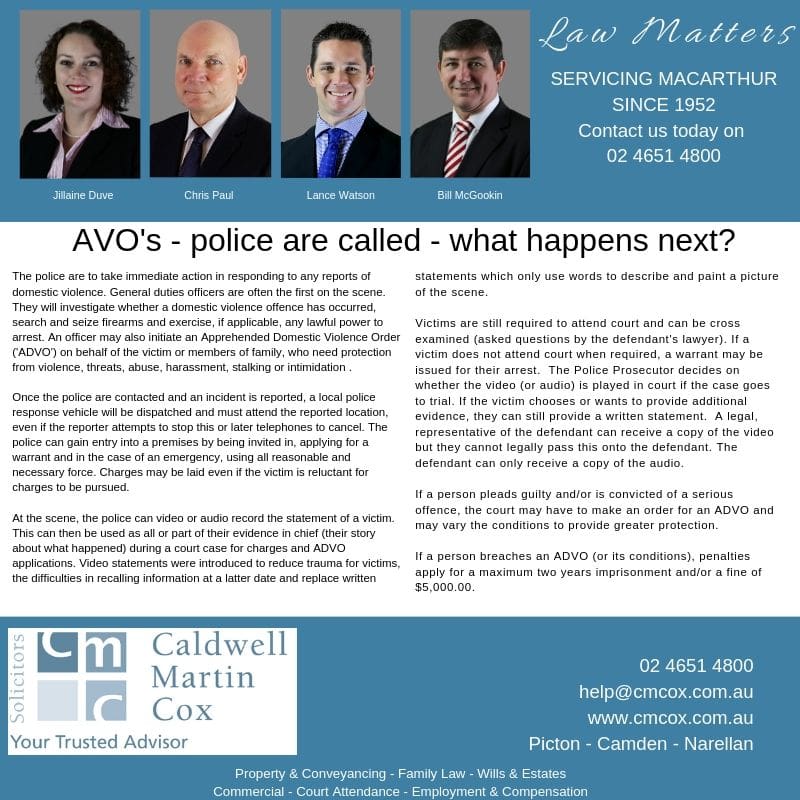When police are called to address an Apprehended Violence Order (AVO) situation, understanding the next steps is crucial. Caldwell Martin Cox provides essential insights into the process, including how to respond effectively, what to expect during legal proceedings, and how to protect your rights. Being informed can help navigate the complexities of AVOs and ensure a fair resolution.
In our latest article in The District Reporter, read about what to expect when you call the police, from the moment you make the call, through to the court process.
The police are to take immediate action in responding to any reports of domestic violence. General duties officers are often the first on the scene. They will investigate whether a domestic violence offence has occurred, search and seize firearms and exercise, if applicable, any lawful power to arrest. An officer may also initiate an Apprehended Domestic Violence Order (‘ADVO’) on behalf of the victim or members of family, who need protection from violence, threats, abuse, harassment, stalking or intimidation.
Once the police are contacted and an incident is reported, a local police response vehicle will be dispatched and must attend the reported location, even if the reporter attempts to stop this or later telephones to cancel. The police can gain entry into a premises by being invited in, applying for a warrant and in the case of an emergency, using all reasonable and necessary force. Charges may be laid even if the victim is reluctant for charges to be pursued.
At the scene, the police can video or audio record the statement of a victim. This can then be used as all or part of their evidence in chief (their story about what happened) during a court case for charges and ADVO applications. Video statements were introduced to reduce trauma for victims, the difficulties in recalling information at a latter date and replace written statements which only use words to describe and paint a picture of the scene.
Victims are still required to attend court and can be cross-examined (asked questions by the defendant’s lawyer). If a victim does not attend court when required, a warrant may be issued for their arrest. The Police Prosecutor decides on whether the video (or audio) is played in court if the case goes to trial. If the victim chooses or wants to provide additional evidence, they can still provide a written statement. A legal representative of the defendant can receive a copy of the video but they cannot legally pass this onto the defendant. The defendant can only receive a copy of the audio.
If a person pleads guilty and/or is convicted of a serious offence, the court may have to make an order for an ADVO and may vary the conditions to provide greater protection.
If a person breaches an ADVO (or its conditions), penalties apply for a maximum two years imprisonment and/or a fine of $5,000.00.




